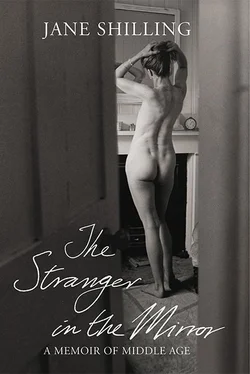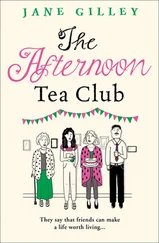The apprehension of my own mortality after the fall from my horse, the sudden vivid certainty that I would grow old and die – and that this wasn’t a process that would begin at some unspecified time in the distant future, but was happening right now – might at a stretch be described as ‘mind-altering psychological turmoil’.
It had altered my mind in the sense that it wasn’t a transient thought, but had taken up lodging there and now sat in the recesses of my consciousness, emitting a low psychic hum, like the sound of a distant hive of bees, or a cat purring in an airing cupboard. I was aware of it most of the time, but mainly it was disconcerting, rather than terrible, though every so often a spectral whisper would pop into the foreground of my consciousness as I was performing some mundane task – making a cake, changing the sheets, cleaning my boots.
‘Remember you must die,’ it would hiss. And, ‘Yes,’ I would obediently think, with a little twist of dread at the prospect, ‘one day I will die. My spirit will leave my body, which will be burned, or buried in the ground, where the flesh will rot from my bones and I shall cease to exist, except in the memories of the people who loved me; and when they in turn are dead, I shall be obliterated entirely. Before that I shall grow old, probably decrepit, perhaps mad.’ And then I would carry on creaming butter and sugar, tucking in my hospital corners or trying to raise a shine on the scuffed toe of my boot.
Not much was left of the childhood Christianity in which I had been vigorously schooled, but just enough for me to feel a certain superstitious ambivalence about the aftermath of death, about which I managed to entertain two quite contradictory convictions. On the one hand I felt certain that my own consciousness would not survive the death of my body. On the other, when I thought about the people I loved who were dead, it was always in the context of a biblical passage whose words and cadences I knew by heart long before I understood what they might mean. ‘seeing we also are compassed about with so great a cloud of witnesses…’ it began, ‘let us run with patience the race that is set before us.’
When I thought of the cloud of witnesses I imagined my grandparents, who seemed, in this posthumous version of them as spectral witnesses of what I was up to down on earth, much as they did when I was a child: old, but cheerful and vigorous, inhabiting a landscape of fields and gardens – an idealised version of the places where they had once lived. They didn’t speak or offer advice, but they were definitely there, benevolent spectators of my mistakes and struggles, in a form more vivid (I thought) than that of mere imagination.
Garrison Keillor’s novel, Pontoon , opens with a scene in which death, in the form of a silent angel, appears ‘like a deer’ in the bedroom of a lively nonagenarian, Evelyn, who is propped up in bed, reading, and says, ‘Not yet. I have to finish this book.’ The angel laughs (‘He’d heard that line… before. He was always interrupting people who were engrossed in their work or getting ready for a night at the opera or about to set off on a trip…’). He takes Evelyn’s hand and ‘they flew up into the sequinned sky… through a meringue cloud into the mind of God and the embrace of her sainted ancestors all gathered at her grandfather Crandall’s farmhouse on a summer morn, the patient horses standing in the shade of a red oak tree, white chickens pecking for bugs under the lilacs, Grandma whistling in the milk house… The weathered sheds and barn, the hayfields of heaven.’
When I first read this, it was with a shock of recognition: I realised that it was like this that I had imagined my own death: the old woman in bed (the image borrowed from the sight of my grandmother resting, small as a withered child, under the pink silk eiderdown of her own deathbed; still present but also profoundly absent: utterly absorbed by the intense silent drama of the transition from life to death); the swooping flight away from earth and into the spacious firmament on high, the solid familiarity of things on earth dwindling smaller and smaller, until suddenly all the ties that bound me to them were loosened and, bursting through the meniscus that separates life from death, I found myself a young woman again, at home (as it were), in a Kentish apple orchard on a warm day in early May, where the kind approving figures of my dear grandparents were to be seen coming to meet me among the blossomy branches.
The hopeless incompatibility of this vision with my conviction that death really was extinction didn’t bother me unduly. If I were pressed to reconcile the two, I would say that the vision of meeting my sainted ancestors among the apple trees was my stratagem for avoiding Dr Hilary’s mind-altering psychological turmoil.
The experience of middle age is one of many different losses. All sorts of things go missing around this time: youth, looks, ambition, eyesight, teeth, husbands, lovers, parents (and with them one’s accustomed role as a child), children (and with them one’s accustomed role as a parent); or the hope that one might one day bear a child. As outriders to all this loss come a handful of grim gains: in particular, the timor mortis that comes with waking on the morning of your fiftieth birthday to the realisation that (increasing numbers of centenarians in the population notwithstanding) your store of life is running out: you have lived for more years than remain to you.
To wrestle from this intractable catalogue of large and small diminishments a life that remains rich with hope and interest, while at the same time not denying that you’re on the downward curve of the arc that leads from the stark simplicity of birth to the answering simplicity of death, is the proper business of middle age. As with puberty, mental turmoil is an essential part of the process of moving from one set of certainties to another. I felt rather suspicious of Dr Hilary’s assurance that these days, the menopause could be accomplished without it.
I was all in favour of anything that would mitigate the ‘intractable physical symptoms’ that apparently awaited me. But what pill, what preparation of red clover, black cohosh, yam, HRT or selective serotonin reuptake inhibitor could conjure away the anguish of the middle years? And if such a magic draught existed, what would be the consequences of taking it? For surely there must be consequences. It was hard to imagine that you could chemically obliterate an entire passage of female experience without setting up some answering physical, psychological and social ripple somewhere further down the line.
That had been the promise on which the contraceptive Pill was marketed: the obliteration of the dread and horror of unwanted pregnancy and the toxic cloud of anxiety that hovered over all sexual activity. As a teenager, the delicious licence offered by the Pill, the laissez passer that it bestowed into an entrancing world of consequence-free sexual exploration, seemed marvellous to me.
Only later, after a decade and a half’s suppression of fertility, did it belatedly become clear to me that I had claimed my sexual freedom at a heavy price. Along with my natural cycle, I had suppressed a longing for marriage, children, the deeply boring and comforting sensation of occupying a double bed with the same familiar old body as years and decades passed. The freedoms that seemed wild and precious at 17 struck me as thin and comfortless at 30. I was weary of the interminable prolongation of my adolescence. I wanted to be a grown-up woman.
Approaching 50 I found myself painfully conscious of the damage I had done to the prime of my life, the years between 30 and 45, by clinging to the habits of my 20-year-old self, refusing to listen to the insistent internal voice that spoke the truth when it said that I found my insouciance a burden, that my unfettered life gave me vertigo, that I longed to be tied down and held captive by responsibilities.
Читать дальше












